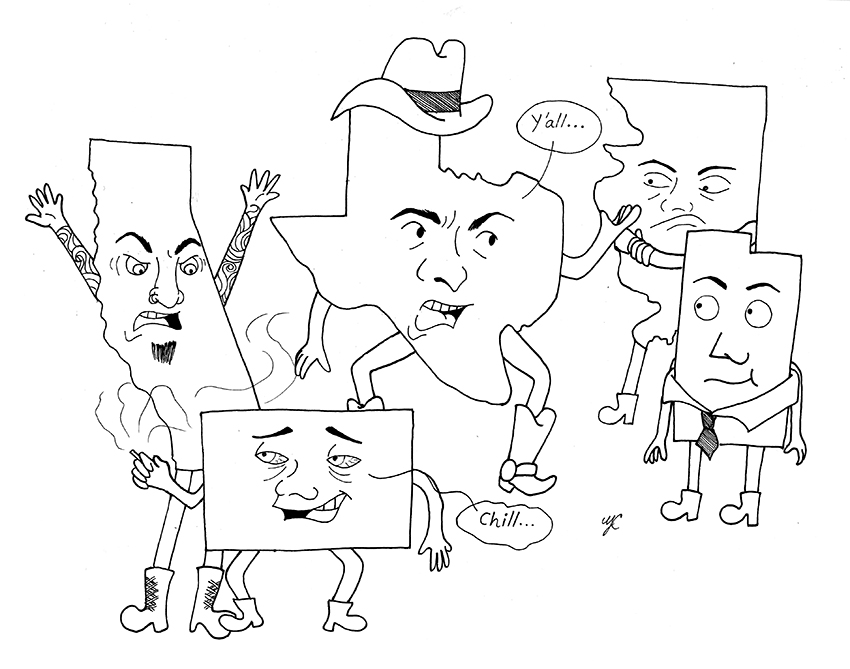Uncertainty was a hot topic in 18th century publications, when early statisticians were debating the merits of probability theory. In the 2016 election, uncertainty rose to the forefront of the press again as then-candidate Donald Trump continued to defy pundit expectations of electoral performance. Now, uncertainty can be seen in a probable path forward for an Article V Convention of States, which is alive again in the Texas Legislature.
That’s because Article V of the Constitution, the part of our supreme law in which a constitutional convention could be called by the states, does not provide restrictions on the actions that states could take. In fact, the most guidance our founders provided were the rules by which an amendment is approved: Two-thirds of states (34) have to agree to propose an amendment and three-fourths (38) are required for ratification. When being tasked with the reconstruction of our founding document, this is dangerous.
Imagine, for instance, governors around the United States calling a convention to pass a balanced budget amendment — which, by the way, is a horrible idea. Under the laws of a convention of states, no constitutional authority prevents delegates elected from, say, allowing the states to veto congressional laws and decisions made by the United States Supreme Court. Think that sounds dangerous to the integrity of our public institutions? Yep, and it’s even more dangerous because that’s exactly what Texas Gov. Greg Abbott wants to do. If we believe that the convention could spiral out of control, the starting point in our current political environment is constitutional degradation, not the ending point.
This concern that a convention could enact hyper-partisan public policy is a concern no matter what side of the aisle you are on. The delegates appointed by each state could very well bow to liberal influences and nationalize the healthcare system in exchange for a balanced budget amendment, for example, or any number of concessions delegates could come up.
On top of the uncertainty from the convention itself, we must add the uncertainty anticipated by the current state of our politics. Think pluralist influences run amok in electing President Trump, who has so far both implemented policies even Bush-appointed judges dislike and failed to deliver on promises his voters have expected? Envision the influence that those people could yield over their state’s delegates. And if you’re no fan of the congressional GOP, imagine the influence they would have over the delegates chosen from their home states. In the same vein, we should also consider the possibility of delegates being corrupted by private interests.
To put it plainly, our divided and effectively populist political climate, coupled with the downright danger of a Constitutional Convention governed by centuries-old rules, poses a uniquely uncertain danger to the Constitution. Any number of negative outcomes could degrade the original intent of the Constitution — which, according to its writers, was to provide a government with powers so centrally strong that policy and political unification could occur across the country, while preserving the rights of those states. Calling for an Article V Convention could all but render that promise meaningless.
Consider the following words from Alexander Hamilton for parting deliberation: “Real liberty is neither found in despotism or the extremes of democracy, but in moderate governments.” We should wonder how moderate our government would be after the Constitution made its way through a convention of states.
G. Elliott Morris is a government, history, and computer science junior. He is a senior columnist. Follow him on Twitter @gelliottmorris.






















